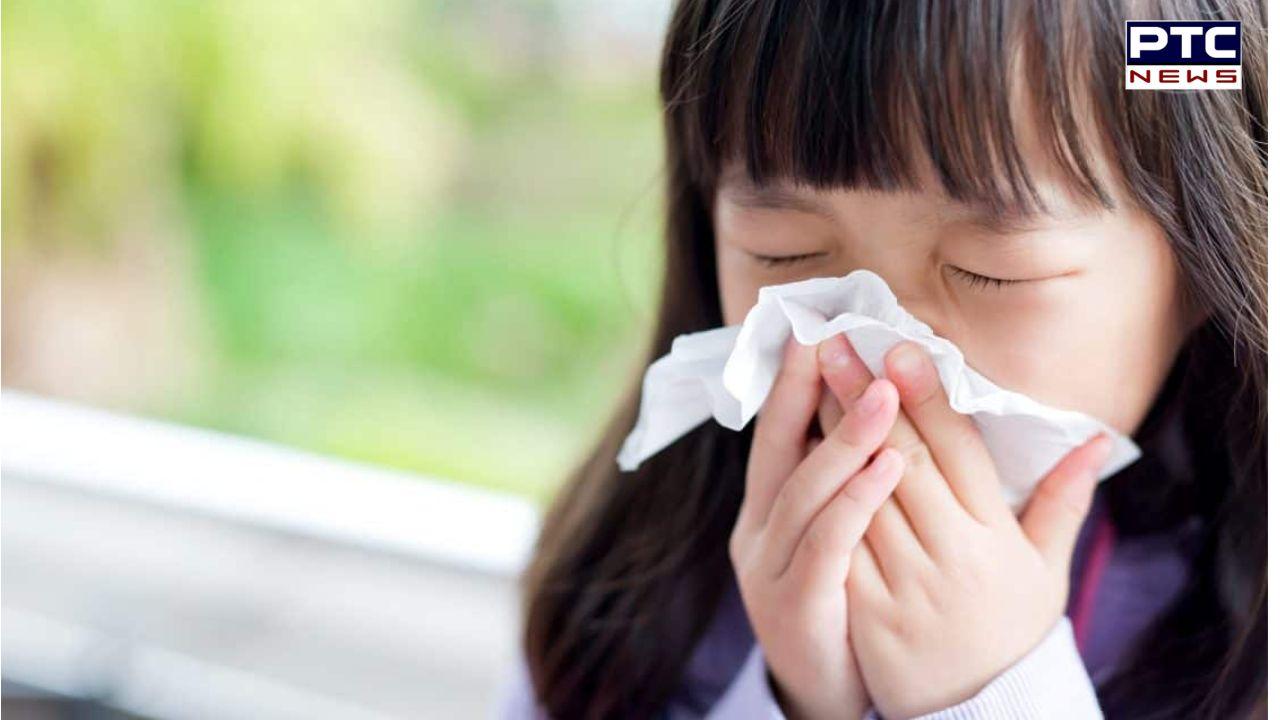HMPV Virus: Why young children are testing positive for Human Metapneumovirus? Read in Detail
Experts say the most vulnerable group for HMPV infection in India appears to be infants, particularly those under one year of age

PTC Web Desk: India is on high alert following the emergence of the Human Metapneumovirus (HMPV), a respiratory virus that has already wreaked havoc in China. Nine confirmed cases have been reported in India, with the majority involving children under the age of one, raising alarms about its spread in the country.
Of these cases, six are infants. The virus, which shares symptoms with common cold and flu, has a potential to evolve into more severe conditions such as bronchitis and pneumonia, particularly in vulnerable populations.
HMPV is a known pathogen that primarily affects the respiratory system, causing symptoms similar to a common flu. However, it can lead to more severe complications, especially in infants, the elderly, and those with weakened immune systems. The virus has recently been causing increasing cases of respiratory distress in several regions, particularly among infants under six months old. Experts suggest that the rapid transmission of HMPV could be linked to its mutated form circulating in China, which is speculated to be more contagious and potentially more dangerous.
Early symptoms and risks
The symptoms of HMPV infection are generally mild, resembling those of a common cold, such as a runny nose, cough, and fever. However, in some cases, the infection can progress to cause more severe respiratory distress, including difficulty breathing, wheezing, and pneumonia. Health officials have warned parents not to ignore any flu-like symptoms in children, particularly if the child exhibits unusual difficulty in breathing or shows signs of fatigue.
Experts say the most vulnerable group for HMPV infection in India appears to be infants, particularly those under one year of age. According to global data, the highest number of cases of HMPV infections have been observed in children aged between four to six months. In India, too, most of the cases are being reported among infants under the age of one, says the available data so far.
While the HMPV virus has been present in various regions for years, the current surge in cases in China has drawn international attention. In China, the number of reported adult cases has risen, with experts linking the increased cases to weakened immune systems in elderly populations.
Doctors nationwide are of the view that the virus itself is not new. However, the emergence of potentially more dangerous mutations in China has fueled concerns. They say while it's too early to confirm whether the virus has mutated into a more dangerous form, it’s important to note that this is not a new virus. It has been circulating globally for years without causing significant widespread fatalities. Experts say it is essential to avoid panic until more conclusive data is available regarding the potential mutation of the virus.
In response to the growing number of cases, the Central Government, through the Ministry of Health and Family Welfare, has initiated an advisory to states to increase surveillance on respiratory diseases, especially in light of rising seasonal infections. The government has urged medical teams to be vigilant and to screen for HMPV, as well as to enhance reporting on flu-like symptoms, especially in children under five years old.
Doctors are advising parents to keep a close eye on any flu-like symptoms in their children and seek medical advice if the symptoms worsen. "In infants, respiratory distress, wheezing, and a decrease in activity levels could be signs of complications related to HMPV infection. Immediate medical attention should be sought in such cases," they add.
The primary defense against the spread of HMPV remains prevention, as there is currently no specific antiviral medication or vaccine for the virus. Preventative measures include frequent handwashing, maintaining good hygiene practices, and avoiding close contact with infected individuals. Since HMPV spreads through respiratory droplets, it can be transmitted through sneezing, coughing, or touching contaminated surfaces. Ensuring that children, especially those under the age of one, avoid close contact with infected individuals is crucial.
Parents are advised to keep children indoors during peak flu season, avoid crowded places, and ensure that children wash their hands regularly to prevent the spread of the virus. Additionally, if a child shows early signs of flu-like symptoms, parents should seek medical attention promptly.
